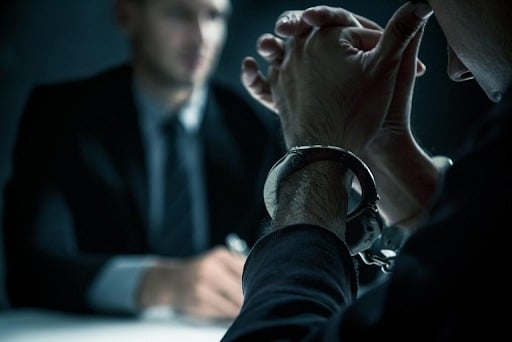Finding the Right Advocate: Essential Questions That Could Save Your Future When Meeting a Toronto Defence Counsel
Getting charged with a crime throws your whole life into chaos. One minute everything’s normal, the next you’re staring down the barrel of court dates, possible jail time, and a future that suddenly looks nothing like you’d planned for yourself.
Most folks have zero experience with the justice system until they need Toronto criminal lawyers themselves. And by then, they’re usually too rattled to think straight during those crucial first meetings. I’ve seen people waste entire consultations because they froze up or didn’t know what information they actually needed.
Have You Handled Cases Like Mine Before?
Every criminal charge comes with its own quirks and complications. Defending someone against assault accusations requires totally different knowledge than fighting fraud charges or impaired driving. You wouldn’t want a lawyer who mostly handles shoplifting cases suddenly taking on your sexual assault defence.
When you ask this, watch for specific details rather than vague reassurances. A decent lawyer might say something like, “Last year about 40% of my caseload involved drug possession charges, and I’ve taken eight similar cases to trial in the past three years.” That gives you something concrete to work with.
Be wary of lawyers who bounce between overconfidence (“Oh, I win these cases all the time”) and those who seem completely unfamiliar with your type of charge. Neither extreme bodes well for your defence.
What Might Happen in My Situation?
This cuts straight to what’s keeping you awake at night. A straightforward lawyer will give you the unvarnished truth—not just what you hope to hear.
They should walk you through various scenarios: best case, worst case, and what they honestly think is most likely. Pay attention to whether they discuss diversion programs, plea options, trial possibilities, and sentencing ranges that apply to your circumstances.
The legal system’s too unpredictable for guarantees, so anyone promising specific outcomes should raise red flags. Instead, they should explain which factors could help or hurt your position and how they might influence things.
Can You Explain Your Billing Practices?
Legal fees add up faster than most people realize. Defence lawyers typically work on either hourly rates or flat fees for specific services. Each approach has its merits depending on your case.
Beyond just asking “how much,” dig into:
- What size retainer they need upfront
- Extra charges for court appearances or bail hearings
- Whether they bill for every email and phone call
- If they offer payment plans when cases stretch on
These conversations feel awkward, but avoiding them sets you up for nasty surprises later. A lawyer who gets squirmy discussing money probably has billing practices they’d rather not explain clearly.
Who’s Actually Working on My Defence?
Hardly anyone realizes that the lawyer they hire might not handle everything personally. At bigger firms especially, junior lawyers, articling students, and paralegals often do substantial work behind the scenes.
This arrangement isn’t necessarily bad—it can keep your costs lower and bring fresh perspectives to your defence. But you deserve to know who’s doing what.
Ask point-blank: “Will you personally appear at my court dates? Who drafts the documents? Who should I contact with questions?” If the impressive senior lawyer you’re meeting hands everything off to juniors after taking your money, that’s something you should know upfront.
How Will We Stay in Touch?
Nothing breeds panic like silence from your lawyer when your future hangs in the balance. Different lawyers have wildly different communication habits. Some provide regular updates while others reach out only when something changes.
Nail down expectations early: How quickly do they typically return calls? Will they update you weekly or only when developments occur? Do they prefer texts, calls, or emails?
I’ve seen countless client-lawyer relationships sour simply because their communication styles clashed. If you need frequent reassurance but your lawyer communicates sparingly, you’ll be miserable regardless of their courtroom skills.
What Would You Do If You Were Me?
This question often reveals more than anything else you could ask. It pushes the lawyer beyond legal strategy into practical human-to-human advice.
Listen carefully to whether they consider personal factors like family situations, employment concerns, or your mental health—not just legal manoeuvring. A thoughtful answer acknowledges that criminal charges affect every aspect of your life, not just what happens in court.
Watch how they respond. Do they seem annoyed by the request? Give a canned response? Or actually pause to consider your specific circumstances? Their reaction tells you volumes about whether they see you as a file number or as someone facing one of life’s most difficult challenges.
Gut Feelings Matter
Beyond specific questions, pay attention to the feeling you get from the lawyer. Do they actually listen, or just wait for their turn to speak? Do they explain things clearly or hide behind legal jargon? Do they seem genuinely interested or constantly check the time?
You’ll likely work with this person through one of the most stressful periods of your life. Technical expertise matters enormously, but so does basic human rapport.
Finding the right criminal defence lawyer often takes several consultations. That’s completely normal—and worth the effort. The decision could literally determine where you spend the next few years of your life. Take the time to find someone who understands both the law and what you’re going through as a person caught in the system.







